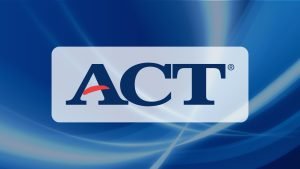Florida Residents - Step Up for Students Scholarships Direct-Pay Provider. Learn More

Florida Residents - Step Up for Students Scholarships Direct-Pay Provider. Learn More

As a test prep tutor who’s been helping high school students crush the ACT and SAT for the better part of two decades, I’m not surprised that the SAT has changed its format yet again – this is typical College Board behavior.
I remember when I was in high school, the SAT consisted of sentence completions, analogies, and reading passages. I had to study mounds of SAT vocabulary to prepare for it. Several years after I began tutoring students, the College Board changed the test. First, it altered the SAT score from a 1600 to a 2400 by adding a third section – the Writing section, which was previously the SAT II Writing section. Then, in a matter of several years, it changed the test back to a 1600 standard, getting rid of the third section, and splitting the other two into two sections (to make a total of four): a Reading section, a Writing, and two Math sections, one with permission to use a calculator and one without. It later axed the SAT II subject tests altogether.
Now, the test has gone digital – you can take it on a computer or tablet. The calculator has been brought back so that it can be used on the entire math section, which consists of two “Modules.” There are two Reading & Writing Modules and two Math Modules.
The greatest change, however, is that the test is now “adaptive,” meaning how you perform on the first Module determines the difficulty level of the questions you see on the second one, all of which affect your final score.
Finally, the test has been reduced by a third in both quantity of questions and time. So instead of it being a roughly 3-hour exam with around 160 questions, it is now a 2-hour exam with a little under 100 questions.
So with all of these changes, the question remains: Should you (or your child) take this new Digital SAT or stick with the ACT?
The simple answer is this: it depends.
If your target score is lower than 1350 on the SAT (29 on the ACT), there isn’t a marked difference between the two tests, and it’ll come down to personal preference.
Do you want a shorter test taken on a computer? Take the SAT. Do you want an easier test in terms of difficulty, albeit with more questions? Take the ACT. Is the Science section of the ACT the section you most dread? The SAT might be a better fit. And so on.
But if you are targeting a score higher than that, especially if your goal is a 1450+, then one test is more preferable to the other – the ACT.
Here are the top three reasons why the SAT is a worse test for the high scorer.
As mentioned above, the SAT is now an adaptive test, and like many adaptive tests, such as the GMAT, the specifics of how each question is weighed and the kinds of algorithms used are not clear. Unlike the ACT, which publishes the scale for each released test, the SAT gives us no way of knowing how the test makers have calculated the scores, thus making it very difficult to predict the score even if we know how many questions were incorrect for each section.
Moreover, what I’ve found time and again is that each question on the SAT can carry up to 20 to 30 points, especially when you’re only getting several questions wrong per section. In other words, you can get 3 questions wrong on the Math section, for example, and score a 740, or worse a 710. And because there is no set scale to refer to, there’s no way to know how you’ll score on any given test. And for that reason alone, I advise parents and students to avoid the SAT.
It’s not uncommon for my students to take both the SAT and ACT, and find that their ACT scores are better than their SAT scores.
Simply put, it’s easier to score higher on the ACT than it is on the SAT. In other words, it takes less effort to score, say, a 33 on the ACT than it does to score its equivalent (1450-1480) on the SAT. That is partly due to the point I made earlier, that the scale is unclear and that in the higher score range, each question wrong seems to be about 20-30 points off your total score, a very harsh scale.
It’s also due to the fact that ACT questions themselves are more consistent from one test to another, and thus more predictable. You have to answer more questions on the ACT, and you have less time per question, but the questions themselves are easier in terms of difficulty.
Now, students might not know this fact at first. But when I work with them, I show them just how easy most of the questions are, and once they figure that out, it’s only a matter of time before they begin to score very well on the test. In fact, in general, most of my students score a 30 or above on the ACT.
Scoring high on a standardized test comes down to deliberate practice. There’s no getting around the fact that it requires familiarity and repetition, which means you need lots of good practice material. There are dozens of past ACTs in addition to the newest ACT prep guide that offers 8 practice exams. In my experience, the amount of material out there has always been sufficient for every student I’ve taught. There has never been a shortage of official previously-administered ACT tests to use for practice. I’ve never had to resort to third-party materials from companies like Princeton Review or Kaplan.
The SAT is a different story. College Board has released an app called Bluebook, which offers (at this time) 6 practice SATs, with additional practice problems. Moreover, Khan Academy offers a complementary SAT course with lots of practice questions. I don’t know how many questions Khan Academy has in total, but I see Khan Academy as a third-party company, and don’t see their resources as comparable to the actual practice tests. For some, this might be enough. But for others, I can foresee a shortage of good material from which to prepare.
As I said in my last post, I’m holding a 6-week Prep Course (online live class) for the June ACT that’s a fraction of the cost of private tutoring. It’s also discounted over 30% of what I’d normally charge.
It begins on April 30. Click here for more information or to sign up.
If you’re interested in private tutoring, schedule a free consultation.
If you’re interested in receiving more information about preparing for a successful future, sign up for my Newsletter.
Get the latest tips and strategies to maximize your scores on the ACT • SAT • CLT and find scholarships.
Our most valuable tips right inside your inbox, once per week.
